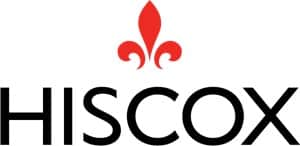Dance studio insurance can either be a policy, or combination of policies, that protects your business against liability claims and first-party losses. The best policy for dance studios is a business owner’s policy (BOP), which combines liability and property. Dance instructor insurance policies for private dance instructors or independent contractors are general liability and professional liability. For a studio, policies can range from $350 to over $6,000 annually.
Whether you own a dance studio or are an individual instructor, Next Insurance can provide quotes with different coverage levels in less than 10 minutes. After selecting the policy that best fits your business, you can purchase it online and instantly have proof of insurance.
Dance Studio Insurance Costs
The following estimated prices are averages taken from obtaining multiple quotes online from different providers. Costs can vary depending on the specifics of your business.
Insurance Type | Coverage Amount | Average Annual Premium |
|---|---|---|
General Liability | $1 million occurrence and $2 million aggregate | $350 to $900 |
Professional Liability | $1 million | $490 to $1,320 |
Commercial Property | $35,000 with $500 deductible | $300 to $500 |
BOP | $1 million building, $50,000 property, $1 million per occurrence, $3 million aggregate | $4,800 to $6,600 |
There are several factors that can impact the cost of dance instructor insurance, including
- The value of property and equipment: If you teach dance classes at client’s homes and have mats and music equipment, then your costs will be much lower than a large studio with a 3,000-square-foot facility.
- The number of students: The higher your enrollment, the higher the cost of the premium. Some carriers will charge a flat fee per student during peak enrollment, on top of additional fees.
- Whether you join competitions: If your studio has a team that travels to competitions or rents spaces for performances, then insurers will account for this added risk.
- The claim and financial history: Insurers will want to know if, in the past three to five years, you have had a claim or filed for bankruptcy.
It is important to answer questions honestly and provide as much information about your business to the provider. This allows it to not only properly calculate premiums but also charge you for the right level and type of coverage.
Insurance Coverage Types for Dance Instructors
The type of insurance you need depends on your business. Dance instructors may only need professional liability while a dance studio with a building and multiple employees will need several different policies.
Type of Insurance | What It Covers |
|---|---|
BOP | General liability, commercial property and, usually, coverage for loss of business income |
Professional Liability | Legal costs from lawsuits over professional errors, omissions, and negligence |
Inland Marine | Equipment and tools that are not at a fixed location |
Accident & Medical Payments | Medical expenses for injured parties regardless of who is at fault |
Workers’ Compensation | Medical bills and lost income from a work-related injury or illness |
When looking for a quote, most insurance companies will offer a BOP, which every dance studio should consider. It groups two of the most common types of coverage, general liability insurance and commercial property, and most insurers will include lost business income coverage with a BOP too:
- General liability offers protection for claims of negligence that led to bodily injury, property damage, and personal advertising injury. So, if your business is negligent and another party is injured or has their property damaged as a result of your business, general liability will protect you.
- Commercial property covers your equipment, furniture, mats, and even the building. The coverage is usually limited to named perils like fire, wind, and theft. The coverage is tied to the location on the policy. So, if you transport equipment with you to different locations, commercial property isn’t the right coverage. For that, you’ll need an inland marine (see below).
If you work as an independent contractor with a studio as a dance instructor, this is probably the most important coverage for your business. Sometimes, professional liability is called errors and omissions (E&O) -coverage. This is designed for people who, in the capacity of their job, give advice. If your advice causes financial or physical harm to someone, you could be held liable.
For example, if you incorrectly teach a student how to do a petit jeté and, over time, they develop an injury from doing it wrong, professional liability can help with the costs of the claim.
If you are an independent contractor or private dance instructor and teach out of your home or in clients’ homes, then you will want to look into this property policy. Inland marine insurance provides coverage for the equipment—like mats, stereo, or standing bars—that you take with you to different locations. Providers will offer this either as a stand-alone policy or as a bundle with general liability.
Some providers will include this in a liability policy for dance studio insurance—but if not, then ensure you pick it up. It pays for the medical expenses if someone is injured while performing physical activity in a nonnegligent incident.
If, for instance, a dancer twists their ankle while jumping but no incorrect advice was provided and the space is risk-free, this incident does not fall under either general or professional liability. This coverage helps the student with their medical bills.
Most general liability policies do carry medical payments, but the amount is often very limited, anywhere from $5,000 to $10,000. Review your policy with your insurer to see to it that your limits are sufficient.
Dance studios usually employ multiple instructors and support staff. In nearly every state, workers’ compensation insurance is required if you have at least one employee; many states have broad definitions for an employee, so an independent contractor may qualify. Workers’ comp helps by covering medical bills, rehabilitation costs, and lost wages for employees who are injured on the job or who experience a work-related illness.
Best Dance Studio Insurance Companies
When evaluating insurers offering insurance for dance studios and instructors, we factored in the available policy limit, whether accident insurance was offered, and the ease of adding additional insureds for event venues.
- Next Insurance: Best overall provider for dance studio insurance
- K&K Insurance: Best for dance competitions
- Thimble: Best dance instructors
- Insurance Canopy: Best for affordability
- Hiscox: Best for dance coaches or rented dance studios
- The Hartford: Best for a BOP
Next Insurance: Best Overall for Dance Studio Insurance

Next Insurance offers three different levels of coverage for dance studios, and each corresponds perfectly to varying types of dance professions: instructor, small studio, or large studio. Its commercial property insurance has limits of up to $5 million for a building, and its BOP contains lost business income coverage.
The ability to provide coverage options to fit your business, its ease of purchasing a policy, and its support services—like options and instant certificate of liability (COI)—make it the best dance studio insurance company. You can learn more about it through our review of Next Insurance.
While the provider doesn’t have many downsides, one is that it is unavailable 24/7 and even on the weekends. If you value being able to reach your carrier no matter the day or time, then you’ll want to check out The Hartford, the only insurer on this list with 24/7 availability.
Next Insurance offers coverage for both dance instructors and dance studios. Just so it is easier when you’re trying to get insurance: the process begins with Next’s fitness studio coverage but, during the quoting process, it will switch over to a dance studio.
We received three quotes for a large dance studio:
- Basic costs $431 monthly and is a general liability only with $3 million in coverage.
- Premier costs $509.54 monthly and offers $4 million in liability limits with $52,000 in office equipment. It also has a professional liability policy with $2 million per occurrence and $4 million aggregate limits.
- Deluxe costs $557.42 monthly. The primary difference between this and Premier is that this has broader property coverage, including equipment breakdown and utilities interruption coverage.
The provider is available in 48 states and offers coverage for over 1,300 industries. Its complaints are lower than the national average with the National Association of Insurance Commissioners (NAIC).
An insurtech company, Next has focused on the digital experience by creating a quick and easy quote and bind process online. Online, you can manage your account, file claims, and get an instant COI.
It makes its mobile app, available on both Android and iOS devices, its hub for customer service. On the app, you can do everything you’d expect to be able to do through a customer service center, including track your claim or upload any claim documents.
This provider was founded in 2015 and has established its financial stability. AM Best rated Next Insurance an A- (Excellent).
Get a Quote from Next Insurance
K&K Insurance: Best for Dance Competitions

K&K Insurance developed a policy package for dance studios that includes off-site competitions and demonstrations, and this insurance automatically includes accident and medical expense coverage. If your studio has a team that competes or you have regular recitals off-site, this is the best provider. Its advantage is its willingness to take on risks that many insurers won’t while still providing a convenient experience: you can get a quote and purchase insurance online.
However, it functions as an agency and doesn’t handle any of the claims directly. Depending on how you want things handled, this distinction is either minor or significant. If you prefer one insurance company for everything, then you’ll want to check out a carrier like Next Insurance or The Hartford.
K&K offers limited online quote options and may request you to call to discuss your insurance needs. We received a quote for a liability policy with a limit of $1 million. It cost $1,140 and came with $25,000 in accident and medical insurance coverage. Options were available, which would increase the price, such as abuse and molestation coverage or equipment coverage. Limits of up to $5 million were available.
Under the umbrella term of general liability, its package includes:
- Bodily injury
- Property damage
- Bodily injury to participants
- Medical payments for participants
- Product and premises liability
K&K’s insurance is available nationwide. It has a helpful overview online of its insurance programs but little information on online account management. Some of its insurance for dance instructors is available online for a quote and purchase, but depending on your business, you may need to call to finish the quote. To file a claim you can call or email.
If you can purchase the policy online, you can log into your account and create an instant COI. If you were unable to, then you have to fill out a request and fax or email it to them. The new COI will be issued within 10 business days.
As a managing general agent (MGA), K&K does not have an NAIC code to track complaints. It is a trusted provider of sports and recreation insurance.
In 1993, K&K was purchased by Aon, a global company. Aon’s AM Best rating is A (Excellent).
Get a Quote from K&K Insurance
Thimble: Best for Dance Instructors

If you are an independent dance instructor, either employed by a studio or teaching seasonally, Thimble is the best insurer for you. The licensed broker offers general and professional liability for dance instructors.
Additionally, it is the only option on this list that offers seasonal coverage, meaning you can purchase coverage for less than a month or by the month. This is great for someone who works as a seasonal dance instructor or a college student teaching during summer or winter break.
Thimble is still a relatively new player in the small business insurance space, and so its coverage offerings are more limited than a larger, more established insurer. While it does offer the key policies you would need, like professional liability, it doesn’t have a number of other policies, such as commercial property and commercial auto. If your business needs more coverage options, check out a carrier like The Hartford or Next Insurance. Otherwise, read our review of Thimble to see if the insurer is a good fit.
When going through the quote process, Thimble will ask if you are seeking coverage for less than a month or a year. We received a quote for general and professional liability, each with a $1 million limit. The quote also had $2,500 in coverage for our portal equipment with a deductible of $500.
The policy costs $83.26 monthly, with $166.52 due upfront. It had several custom options as well, so if you do not need equipment coverage, then you could remove that. Our quote dropped to $68.68 monthly with $137.36 due upfront after removing equipment coverage.
Thimble is licensed in all 50 states and Washington, D.C. As a licensed broker, policies are handled by different companies. Our quote was for a policy through the National Specialty Insurance Company (NSIC), which has very low complaints filed with the NAIC.
You can get a quote and purchase a policy in minutes. You then have access to an online account where you can manage your policy and bill, file a claim, and get an instant COI. Thimble also has iOS and Android apps to help you manage your policy, create and share a COI, file and track a claim, and get a quote and purchase a policy.
The policy for our quote was through NSIC. AM Best’s rating of NSIC is A (Excellent).
Insurance Canopy: Best for Affordability

Commercial insurance premiums, like everything else, are continuing to increase in price. Thankfully, Insurance Canopy continues to offer a very affordable policy for dance instructors without sacrificing quality in customer service or the actual product offered. As a bonus, the policy it offers comes with the highest limits we’ve found online with an aggregate limit of $3 million.
This provider is a really good option for someone looking for a simple policy that is affordable. However, it is unavailable 24/7, and claims are handled through a different carrier, so if you’re looking for 24/7 availability in claims, then check out The Hartford.
Insurance Canopy offers a plan for $12.50 monthly, with the option of purchasing a yearly plan for $129, which is a discount of 14%. This is for a general and professional liability policy with a limit of $3 million. It also includes several options, including accident and medical expenses with $5,000 in coverage.
The policy is flexible with options to fit your business needs. Additional insureds cost more, but for $30, you can have unlimited additional insureds, and for $16, you can add $2,000 in gear and equipment coverage.
Its product is available in all 50 states. After a quick quote, you will have 24/7 access to all of your policy documents if you purchase the policy online. If you wish to call, it is open Monday to Friday, from 8 a.m. to 8 p.m. Mountain time.
Through the online account, you can also initiate a claims process. The policy is through the Great American Insurance Group (GAIG), and it will follow up with you after a claim is initiated.
GAIG, which handles the policy, has a very good financial position. GAIG has an AM Best rating of A+ (Superior).
Get a Quote from Insurance Canopy
Hiscox: Best for Dance Coaches or Rented Studios

Hiscox offers professional liability, general liability, and a BOP for dance instructors. It developed policies tailored specifically for instructors who visit client homes or are employed by dance studies. It also offers insurance for dance apparel retail stores.
As you can see, Hiscox has insurance for a variety of businesses in the dance studio space. However, it is still rolling out different types of coverages, which we go over in our review of Hiscox. So if your business needs more than just the key coverages, you’ll want to consider The Hartford.
We received a quote for general liability and professional liability. Combined, the total cost was $1,105 with a $500 deductible for the professional liability portion. The professional liability policy had a limit of $1 million and the general liability had a limit of $2 million per occurrence and aggregate.
There was no coverage for property in the quote provided; however, there was coverage for damage to a rented premise. So, if you rent a dance studio or are a dance instructor hired by a studio, this policy would work for you.
Hiscox is available in all 50 states and Washington, D.C. Online, you can get a quote after answering a few short questions, pay for the policy, manage the policy, file a claim, and get an instant COI.
Customer satisfaction has been steadily rising at Hiscox over the past few years. Nationally, complaints tracked by the NAIC are lower than expected. It publishes customer reviews on its website[1] and currently has a rating of 4.6 out of 5 from nearly 1,000 reviews.
If you do need to call, it is only available Monday through Friday, from 7 a.m. to 10 p.m. Eastern time.
Founded in 1901, Hiscox has become a leader in small business insurance and is financially stable. AM Best rated Hiscox an A (Excellent).
The Hartford: Best for BOP

The Hartford, one of the best small business insurance companies, excels at developing products fit for different industries. Its BOP is highly customizable, including adding professional liability, and comes with business income insurance. This valuable coverage helps your business if something causes the studio to unexpectedly close, you can file a claim for the lost income.
Read our review of The Hartford for more information on the provider, but if you are looking to save money, check out the dance instructor policy offered by Insurance Canopy. At under $13 a month, you can purchase quality liability insurance.
According to The Hartford, the average cost of a BOP in 2021 is about $261 monthly.
Our quote for a BOP was $834 annually. This included $20,000 in property with a $1,000 deductible and a liability policy of $1 million per occurrence and $2 million aggregate. It also included $1 million in damage to rented premises.
The Hartford is available in 48 states and has lower-than-average complaints with the NAIC.
The quote process is highly customizable. When it finished with our quote, the option was given to edit it at nearly every level: limits, deductibles, and coverages.
In addition to online account access, The Hartford provides instant COIs and is available 24/7 for any claims that you need to file.
The Hartford has over 200 years of experience navigating the complex realm of insurance and the financial stability to be around that long. The Hartford’s AM Best rating is A+ (Superior).
How We Evaluated the Best Dance Studio Insurance
We determined which insurance companies would be the best for your dance studio business through our in-house proprietary evaluation system. In our evaluation, we focused on the customer’s needs. We also paid particular interest to convenience, financial ratings (AM Best), customer service, types of policies offered, and the overall experience as a policyholder for a specific provider.
Frequently Asked Questions (FAQs)
Dance studios need a BOP, which offers liability and first-party property insurance. Dance instructors should also consider professional liability insurance. Depending on the state and number of employees, a studio may also need workers’ compensation.
An average cost for a BOP can range from $4,800 to $6,600 annually. Many factors will determine if that price is higher or lower, like claims history, value of the insured property, and the size of the studio.
If you work as an independent contractor at a studio or your studio employs contractors to teach, then you’ll want to review the policy to see if the contractors are “additional insureds” under the policy. If not, then the contractor will want to consider purchasing professional liability insurance.
If hosting parties was information requested by the carrier or provided to the carrier during the quote process, then birthday parties should be covered under the current party. However, it is a good idea to review your insurance with the carrier to ensure hosting parties is a covered activity.
Bottom Line
Whether you are a dance instructor or own a dance studio, you need protection against all possible sources of loss. With the right policies, dance instructor insurance will ensure you, your customers, and your employees are taken care of.
If you are a dance instructor or studio owner, then Next Insurance, a small business insurer, can offer you the right coverage at the right price. It can structure multiple policy packages for your business needs.
User review reference:
[1]Hiscox